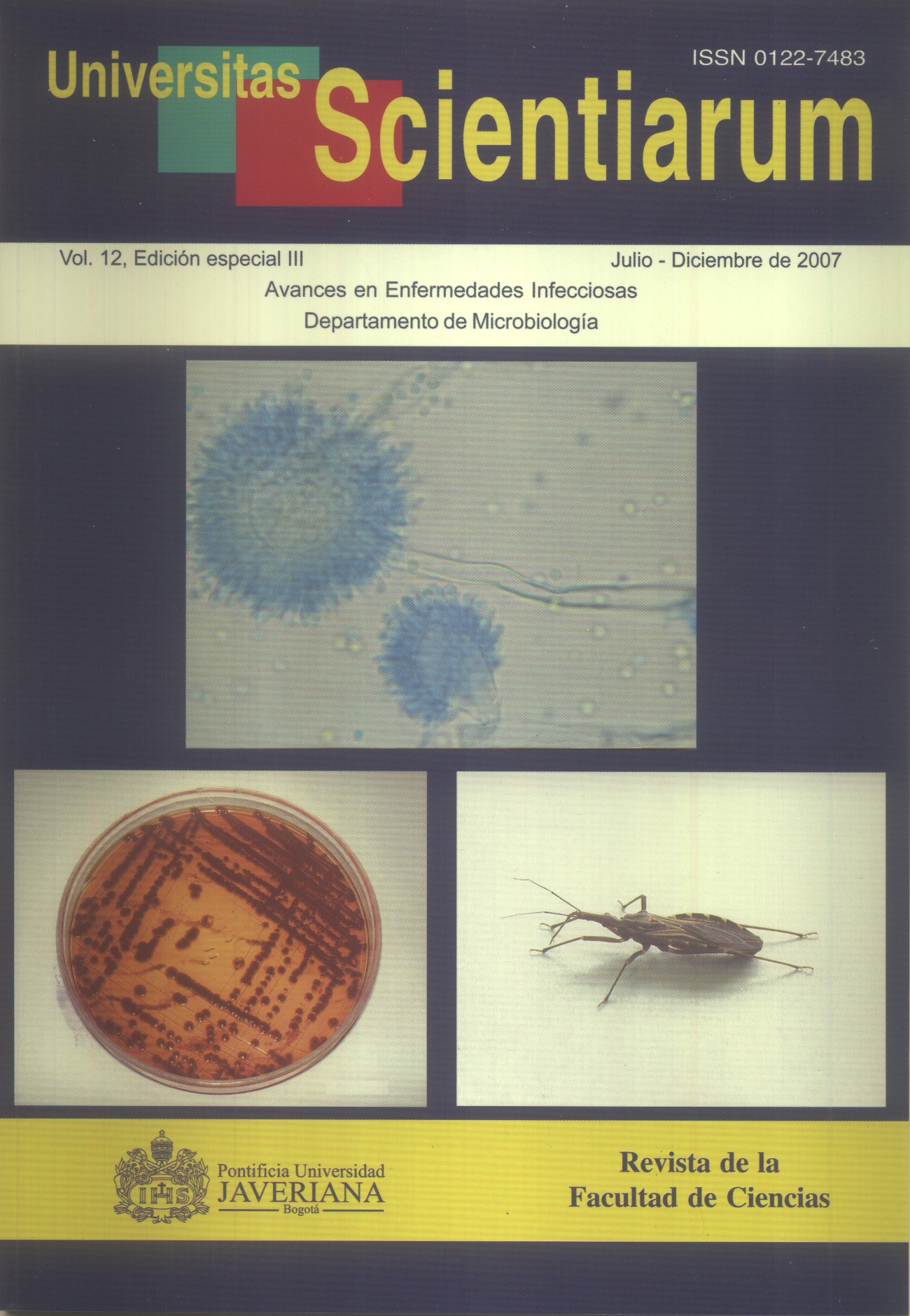Abstract
La infección por Helicobacter pylori desde su descubrimiento por los médicos australianos Barry Marshally Robin Warren en 1982, ha sido uno de los fenómenos científicos de mayor importancia en la literatura biomédica mundial, ya que juega un papel significativo en la etiología y patogénesis de diversas enfermedades gastrointestinales como gastritis crónica y úlcera péptica, además de ser un factor de riesgo importante para el desarrollo de cáncer gástrico. El método más específico de diagnóstico de este microorganismoes sin duda el cultivo. No obstante su sensibilidad varía notablemente en relación con diferentes variables: la colección, transporte, almacenamiento de la muestra; medios de cultivo utilizados y las condiciones de incubación. En este trabajo se evaluó la productividad de tres medios de cultivo para recuperar H. pylori, utilizando el método ecométrico. Los medios mostraron una baja productividad. Los valores de ICA fueron menores a 2,5, para cada uno de los medios de cultivo. La proporción de medios con ICA mediana y bajamente productivos fueron respectivamente los siguientes: Agar ATS: 7,6% y 92,3%, Agar BHI: 0%y 100%, Agar Brucella: 6,6% y 93,3%.Univ. Sci. is registered under a Creative Commons Attribution 4.0 International Public License. Thus, this work may be reproduced, distributed, and publicly shared in digital format, as long as the names of the authors and Pontificia Universidad Javeriana are acknowledged. Others are allowed to quote, adapt, transform, auto-archive, republish, and create based on this material, for any purpose (even commercial ones), provided the authorship is duly acknowledged, a link to the original work is provided, and it is specified if changes have been made. Pontificia Universidad Javeriana does not hold the rights of published works and the authors are solely responsible for the contents of their works; they keep the moral, intellectual, privacy, and publicity rights. Approving the intervention of the work (review, copy-editing, translation, layout) and the following outreach, are granted through an use license and not through an assignment of rights. This means the journal and Pontificia Universidad Javeriana cannot be held responsible for any ethical malpractice by the authors. As a consequence of the protection granted by the use license, the journal is not required to publish recantations or modify information already published, unless the errata stems from the editorial management process. Publishing contents in this journal does not generate royalties for contributors.



